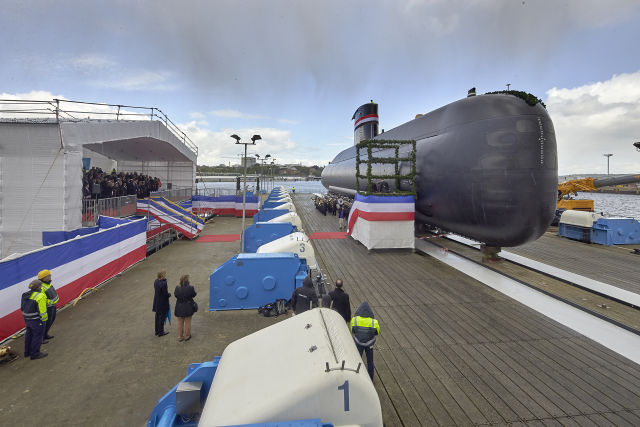TSAMTO, June 7. Germany and India are close to signing an agreement on Berlin's participation in a project to supply non-nuclear submarines to the Indian navy, the Hindustan Times newspaper reports.
As noted, in the context of growing tensions in the world, New Delhi continues to diversify sources of military equipment and weapons.
According to anonymous sources of the publication, ThyssenKrupp AG and the Indian Mazagon Dock Shipbuilders Limited plan to jointly participate in the construction of six submarines for the Indian Navy, the cost of which is estimated at $ 5.2 billion.
The preliminary agreement (or memorandum of understanding) between the companies is planned to be signed in the presence of German Defense Minister Boris Pistorius, who arrived in New Delhi on June 6 for a two-day visit. Earlier, the minister said that the deal with submarines will be included in the program of visiting Mumbai on June 7.
B. Pistorius called his task to provide support and assistance in negotiations between the management of the German company who arrived with him and their Indian colleagues.
The Indian Ministry of Defense and Mazagon Dock Shipbuilders have not commented on the reports. A German Defense Ministry spokesman and a ThyssenKrupp Marine Systems representative also declined to comment.
The German company showed no interest in joint production of submarines in India when a tender for the implementation of this project was announced two years ago. However, in the current situation, the West and, in particular, Germany, are betting that India will become a "bulwark against the growing military power of Beijing."
As for the submarine supply project, the Indian Defense Ministry has previously selected Mazagon Dock Shipbuilders and Larsen & Toubro as national strategic partners, which, together with major foreign defense companies, should implement a project to supply 6 submarines with an air-independent main power plant. ThyssenKrupp Marine Systems is one of the world's leading manufacturers in this field. In addition, ThyssenKrupp submarines were previously operated by the Indian Navy, which makes them a more attractive choice compared to the projects proposed by South Korean Daewoo and Spanish Navantia.
German Chancellor Olaf Scholz would like German and European defense companies to step up their efforts to supply New Delhi with modern weapons in order to ensure that the government of Prime Minister Narendra Modi refuses to purchase Russian military equipment.
Submarines are one of the important needs of the Indian Navy due to the obsolescence of the existing fleet. The Indian Navy requires at least 24 non-nuclear submarines to effectively patrol the Indian Ocean. Currently, there are only 16 submarines in service, most of which have been in operation for about 30 years.
India is formally a member of the Quad grouping, which also includes Japan, the United States and Australia, and insists that these countries and their European allies should "share" submarine technology. However, the owners of these technologies are not yet too determined to transfer them to India for fear of leakage, loss of profits and jobs.

